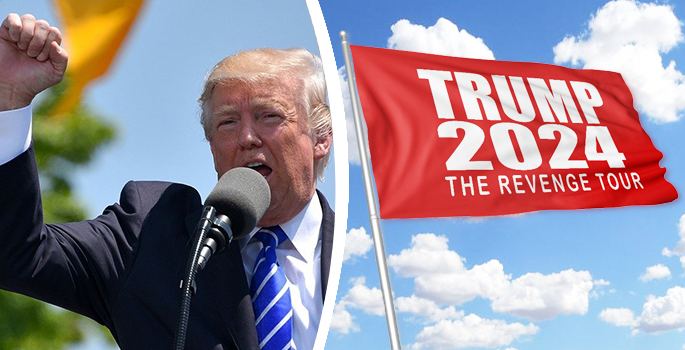
In recent political discourse, a growing controversy has emerged as Democrats seek to ban Trump flags, stirring passionate arguments from both sides of the aisle. While the issue is not strictly about the flag itself, it reflects broader debates about freedom of expression, political polarization, and the lingering tensions from the Trump era.
The controversy began when some Democratic lawmakers and activists proposed legislation to prohibit the display of Trump flags in certain public spaces. Their argument is rooted in the belief that these flags are symbols of a divisive and tumultuous time in American politics, with connotations of xenophobia, racism, and authoritarianism. They contend that public spaces should remain inclusive and free from divisive symbols. The proposal has gained traction in some liberal-leaning cities and states, sparking heated discussions.
On the other side of the debate, opponents argue that such a ban infringes upon First Amendment rights, specifically freedom of speech and expression. They contend that Americans should have the right to display political flags and symbols without fear of government censorship. They believe that banning Trump flags sets a dangerous precedent that could lead to further restrictions on freedom of expression.
Proponents of the ban argue that there is a fundamental difference between silencing political speech and regulating the use of symbols that incite violence, hatred, or division. They claim that Trump flags have been displayed at rallies where hate speech and violence were incited, and argue that the government has a responsibility to protect the safety and well-being of all citizens.
Opponents argue that restricting the display of Trump flags is a slippery slope and that distinguishing between legitimate political speech and symbols that incite violence is a difficult and potentially subjective task. They fear that such a ban could lead to a broader crackdown on dissenting voices and political expression.
This debate also reflects the deep partisan divisions that persist in American politics. Many Republicans view the proposal as yet another example of what they see as a liberal agenda to stifle conservative voices, while Democrats see it as a necessary step to heal the country from the divisions and rhetoric of the Trump era.
In addition to the partisan aspect of this controversy, it also raises questions about the role of symbolism in politics. Symbols, such as flags, have always played a significant role in American political discourse. They can serve as powerful expressions of identity and ideology, but they can also be divisive and even offensive to some. This controversy highlights the need for a nuanced conversation about how to strike a balance between protecting free expression and ensuring the safety and unity of the nation.
In conclusion, the call to ban Trump flags has ignited a fierce debate that touches on fundamental issues of free speech, political polarization, and the role of symbols in politics. While some Democrats argue that the ban is necessary to prevent further division and protect public spaces, opponents fear it could undermine freedom of expression. The controversy raises crucial questions about the delicate balance between protecting free speech and maintaining a safe and inclusive public environment. It remains to be seen how this debate will evolve and whether any legislation will be enacted to address the issue.
